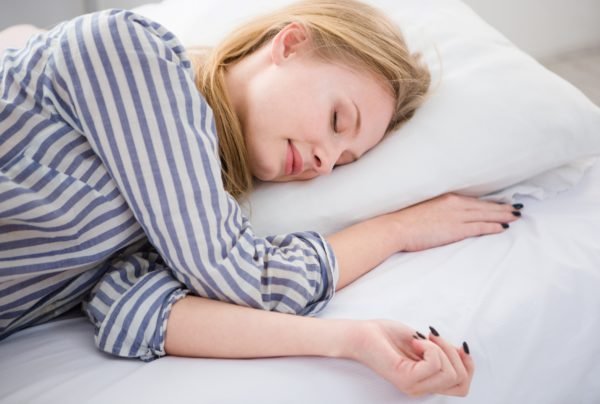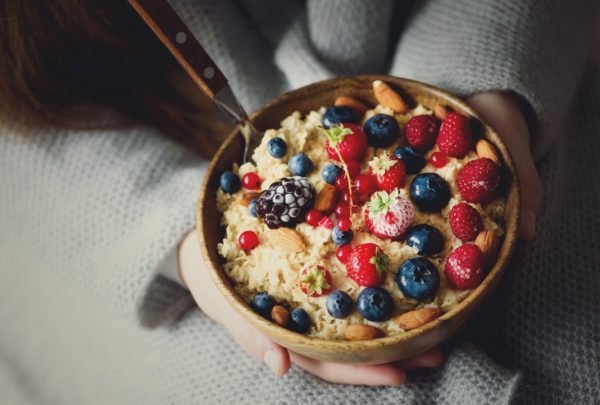
5 Top Tips for a Better Sleep Tonight

Everyone knows how much a good night’s sleep can impact your health (and mood!). We all try to get enough sleep but it can be hard. It’s easier said than done and so many still struggle to fall asleep and find themselves searching for the best sleep tips.
Not getting a good quality sleep at night can seriously impact our health systems. This includes our muscles, immune system and cognitive functions like concentration and memory. What’s more, in the long run, not getting the right amount of sleep increases your vulnerability to chronic conditions and inflammation. Sleep deprivation also leads to mental health problems, such as depression. So, it’s crucial for both your mental and physical health that we priorities a great night’s sleep.
Everyone has their own ways of falling asleep- some prefer to go to bed early, some need silence and some like to relax before hitting the hay.
There are still a lot of us taking longer than we’d like to fall asleep, waking up in the night and struggling to wake up in the morning.
Frequently packed and busy working schedules, commitments with our families and typical modern lifestyles can mean sleep isn’t often a priority to make sure we get everything done. Usually resulting in a forever ongoing battle to get enough sleep.
So, we’ve put together a handful of helpful tips and advice you can easily follow to improve your quality of sleep and make sure you’re getting the hours you need starting tonight.
1. Try a sleep aid
We’re not talking about dangerous ones, or ones that leave you feeling groggy in the morning or unable to wake up. But taking a sleep supplement with natural melatonin in will make it easier to fall asleep quicker and sleep for longer without disruptions. Here are a few of the best sleep aids in the UK.
Melatonin is your hormone that prompts your brain to relax and regulates your sleeping cycles. Upping your melatonin intake is possibly the easiest and most simple ways to ensure you fall asleep fast without waking throughout the night.

Opting for a high quality aid that aids your natural melatonin production, with ingredients such as magnesium. Magnesium can help to relax muscles and nerves. Artificial melatonin can lead to dependence and damage your body’s production of the hormone. It’s also important to look for a sleep supplement that contains tryptophan, which is an amino-acid that aids your melatonin production.
2. Reduce your screen time before bed

A tip you may have heard before is to stop using your phone before bed- especially if you struggle to get to sleep. Exposing yourself to light at night causes your brain to stay alert and believe it’s the daytime.
Almost every adult uses their phone before they go to bed, but it’s not well known the reason for avoiding this. Blue light directly impacts your melatonin levels and is strongly related to disturbed sleep. While bright lights during the day can actually help you fall asleep quicker, it is not the same with blue light from electronics.
Bright light before you’re about to fall asleep can interrupt your body clock and makes it much harder to get to sleep. Your circadian rhythm responds to light and is what causes you to sleep at night, when it’s dark.
You should aim to stop looking at your phone or the television at least an hour before bed. Some people like to read before bed, or even meditate or have a bath to relax and wind down.
3. Cut your caffeine intake by the afternoon

Especially in the morning and at work, everyone loves a cup of coffee – which is great in smaller doses, but a high amount could cause sleep deprivation and a worse night’s sleep.
Your afternoon jolt stays in your system longer than you think so making sure you cut down on your caffeine intake after lunchtime will really improve your sleep and your ability to shut off quickly. You could give decaf tea or coffee and herbal teas a go if you still find yourself reaching for a hot drink after noon.
Caffeine can alter the times of your internal body clock, which means it can change your sleeping pattern. Not to mention the side effects we’re sure you’ve already heard of, such as becoming dependent- which can lead to headaches, feeling tired and aching muscles.
4. Create your own sleeping routine
Many busy working people don’t think to prioritise their sleep- after all, you want to try to squeeze everything in. But, having roughly the same sleeping and waking time will encourage your body into a routine. This will also make it much easier to wake up and fall asleep as your brain will be ready to sleep at your certain time each day. Napping throughout the day can cause confusion too, so avoid this if you can.
As you continue your routine, you’ll feel much more refreshed and have a better night’s sleep. Going to bed at different times every night makes it very hard for your brain to know when to switch off and when it’s time for sleep. Consequently, usually making it difficult to wake up on time.
You can make your routine times to fit around your daily routine- e.g, when you need to get up for work. Don’t forget to fix your times so you get a decent 8 hours sleep a night.
5. Eat less sugar
Ensuring you are eating all the right nutrients and nourishing food is always important, it goes without saying. But, everyone can fall to the temptation of sugary snacks during the day- especially at work.
Eating foods high in sugar leads to spikes in your energy. So, eating a diet of lots of foods that are sugar rich can really disrupt your body clock if you’re getting a surge of energy. Not to mention possible digestive issues.
Foods high in tryptophan can encourage your body to naturally produce melatonin which improves your quality of sleep. These are foods like milk, oats and turkey.

For our busy lives and to be in our best health, getting a high quality sleep every night is imperative. These are all small and simple tips you can implement in your lifestyle that guarantee you’ll get a better night’s sleep.
If you’re opting for a supplement to help- avoiding artificial sleep aids that can alter your melatonin production. And make diet changes and bedtime routine to support your body clock.














































